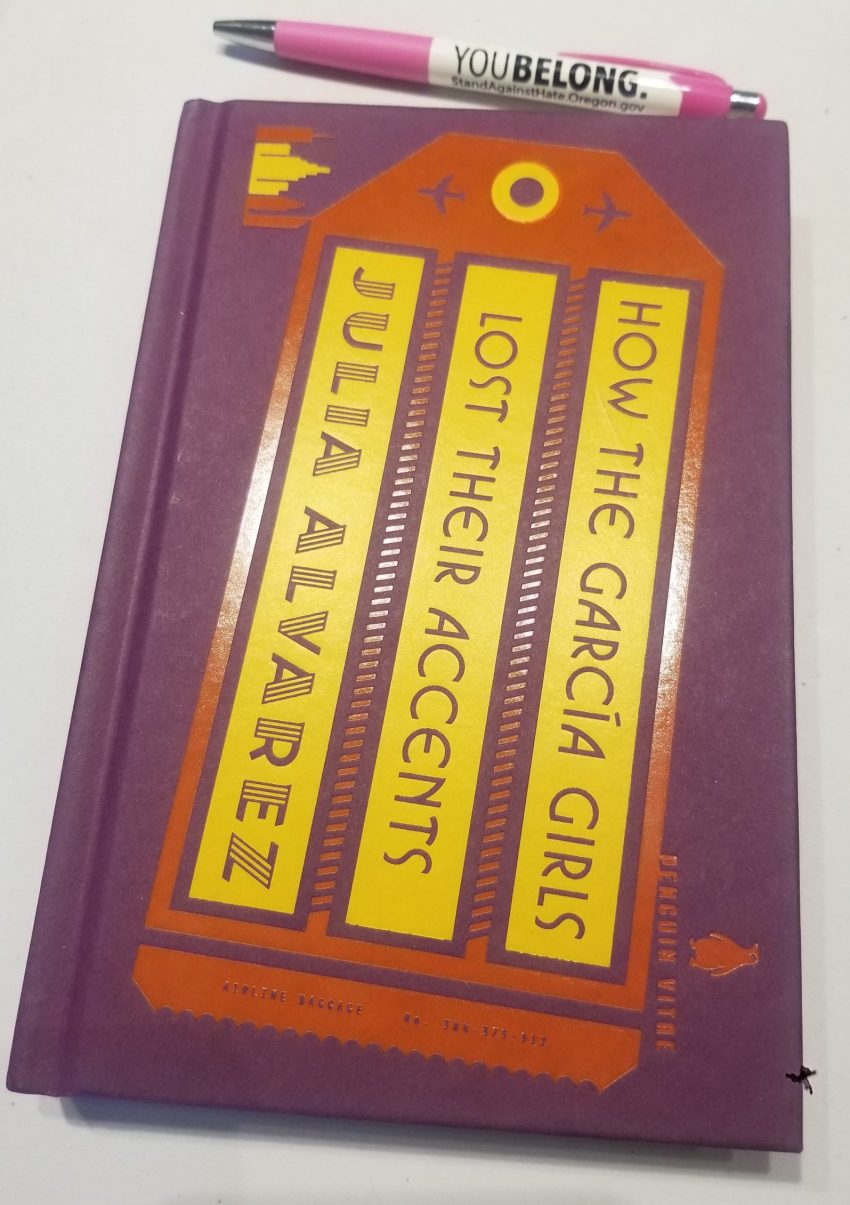EDITOR’S NOTE: Email subject line – From Julia Alvarez, author of How the García Girls Lost Their Accents; “I’m the literary agent for author Julia Alvarez. Some readers of your news publication have reached out to me hoping that Ms. Alvarez would respond to the controversy around her book in your community. Thanks for being a forum for this discussion. I live in a rural community in Pennsylvania and I’m always grateful for the local newspaper and people who produce it. Ms. Alvarez decided she wanted to respond on behalf of her book and I attach her letter to the editor. Please let us know if you would like to publish it. We’d very much like to see that happen,” from Stuart Bernstein, the author’s representative.
ABSOLUTELY, we’d be honored to publish Ms. Alvarez’ letter to the editor about the banning of her book by Tillamook School District.
If you are interested in signing a letter to the TSD#9 School Board asking for a reversal of the decision, please email to editor@tillamookcountypioneer.net to add your name, and join us in our efforts – Tillamook County United Against Book Bans.
I want to thank the parents, concerned citizens, students and teachers in Tillamook who wrote on behalf of keeping my novel, How the García Girls Lost Their Accents, on the 10th Grade English Honors optional reading list.
Nikki Brown, the parent of three students who attend Tillamook school district, took the time to read the contested novel, evaluate its contents, attend meetings to listen to all concerns, and after this thoughtful process, wrote a letter to the editor suggesting a more thoughtful approach. She understands that to cancel books and eliminate voices from our schools and libraries undermines a core value in education: to create thoughtful, well-informed, big-hearted imaginations in our students. However, I understand the committee voted 4-3 not to retain the book—though the commitment to defending a diverse and expansive curriculum coming from a member of the community gives me hope.
When I arrived in this country as a young immigrant in 1960 with a traumatized family fleeing a bloody dictatorship, my sisters and I were confronted with many challenges with no “roadmap” as to how to understand this brave new world. Thankfully I found wonderful teachers and librarians who introduced me to books and became my guides here. It is because of them that I became a writer and also a teacher, spending over forty-four years teaching every grade level, from elementary school to high school and college.
But something was missing: there were no books available back then that reflected the stories of people like my family and me. Part of my motivation in writing that first novel was to try to understand through character and story the challenges we faced as a family. It was the novel I wished I had been able to read and share with my classmates in the hope that it would deepen our understanding of each other.
It saddens me, therefore, to learn that the doors I hoped would open by the sharing of stories are now being closed by those who, in fact, share my concern as an educator: to take care of our young people by enlarging their hearts and imaginations. I believe that happens best within the safe space of a classroom, in company with other students, who together with a teacher’s guidance engage with characters, situations, challenges, tragedies and triumphs that they are facing or will face in their own lives. I believe learning to read and listen carefully, evaluate a text critically, and empathize with characters very different from themselves are critical tools that will help our students to become the bigger versions of themselves and to respect diverse points of view.
Having come from a dictatorship where books were censored and discussions were discouraged, I know how important it is that we protect not just our homes, communities, and borders but also our bookshelves. Stories are our shared legacy as a human family and our children are the poorer for being prevented from claiming that heritage.
Julia Alvarez, author of How the García Girls Lost Their Accents


